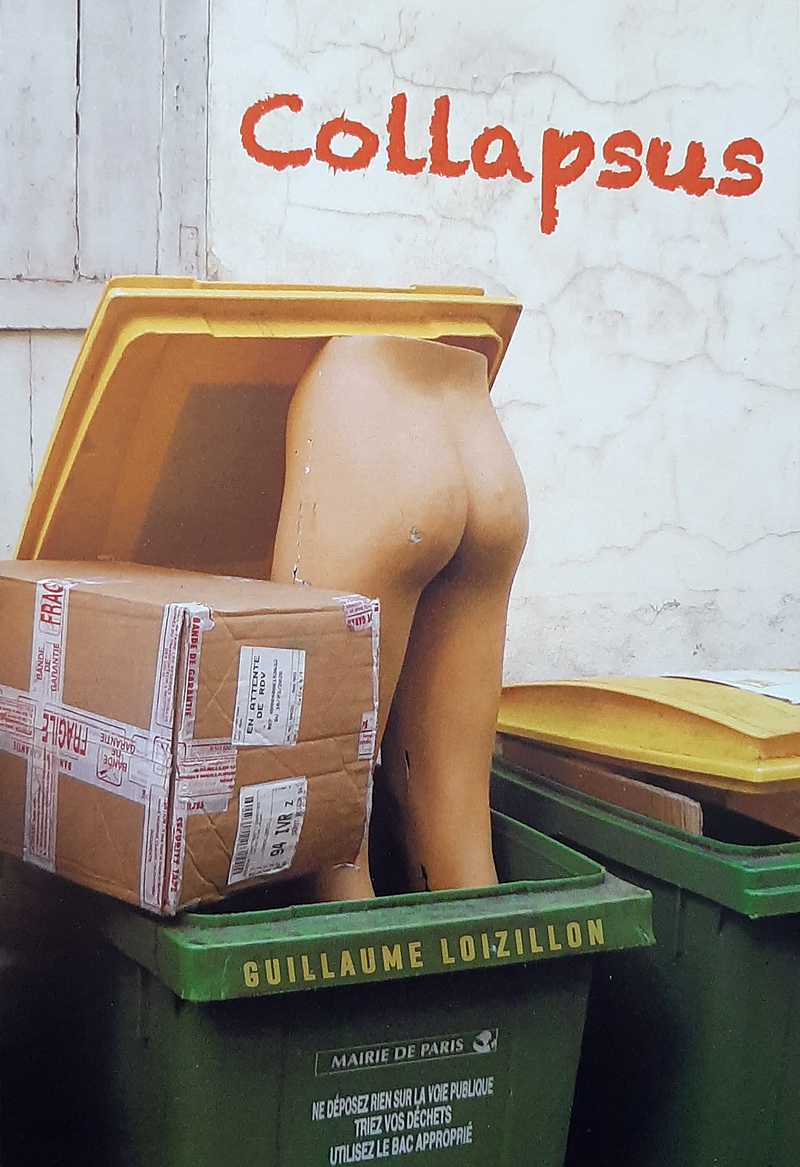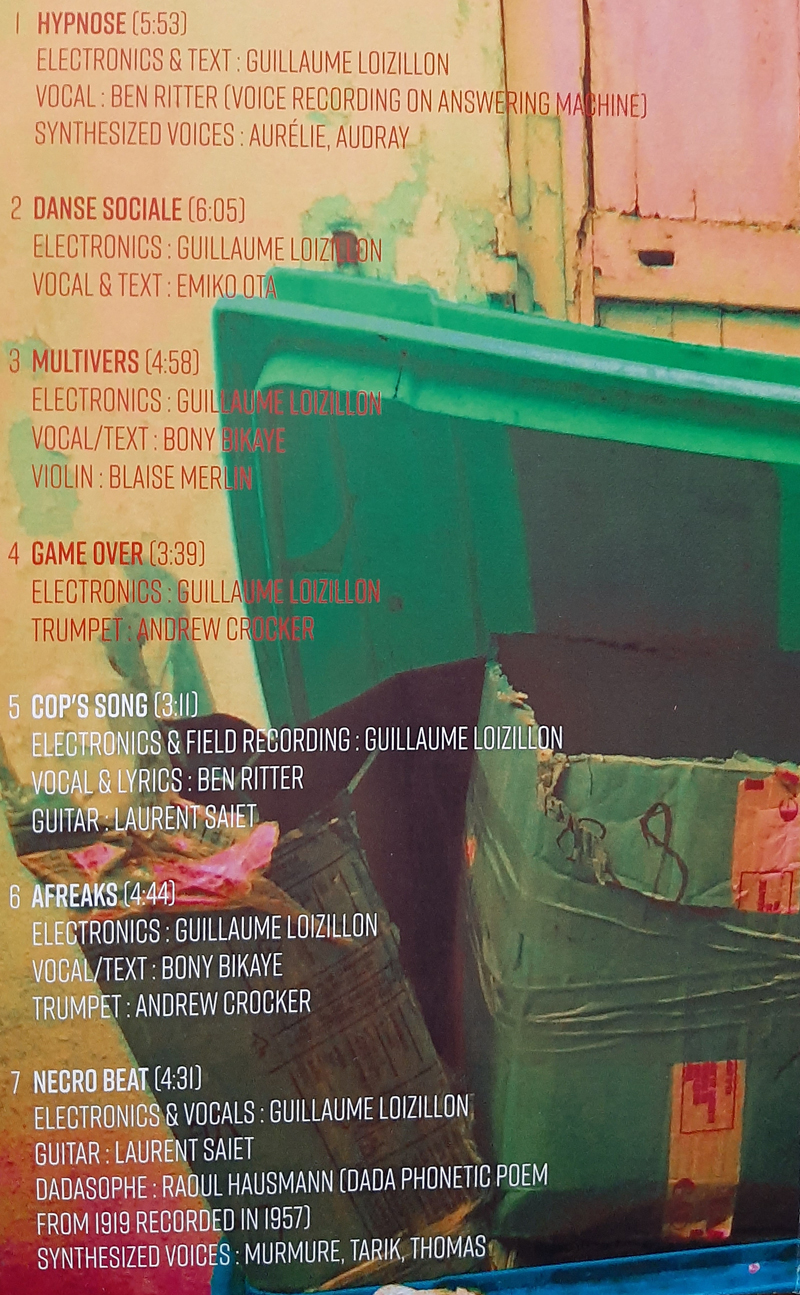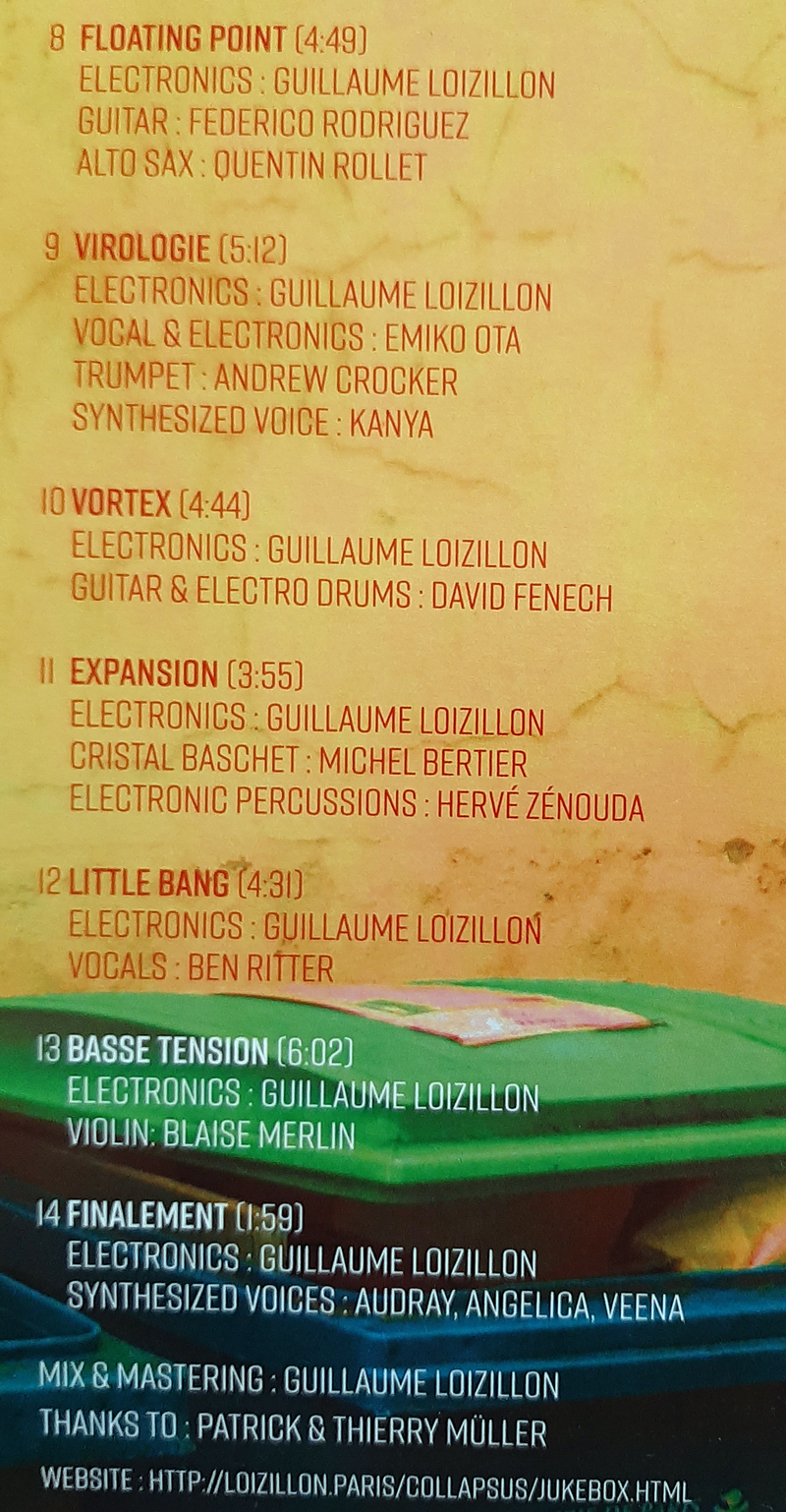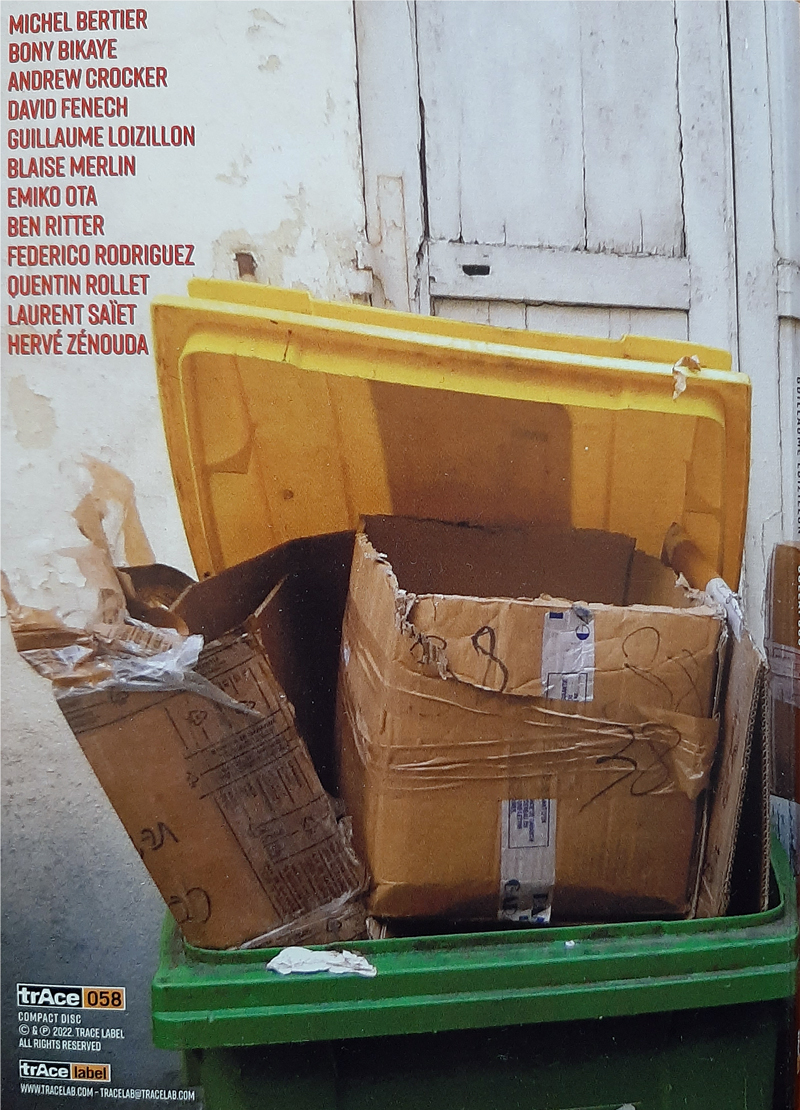
Guillaume Loizillon - Collapsus
Label : Trace
Release Date : 2022
Collapsus is a recording project of French musician Guillaume Loizillon with a lot of guest musicians. Including Laurent Saiet, Ben Ritter, Andrew Crocker, Aurélie Audray , Blaise Merlin, Bony Bikaye, Emiko Ota, Federico Rodriguez, Hervé Zénouda, Michel Bertier Michel, Patrick & Thierry Muller, Quentin Rollet ... David Fenech plays electric guitar and echo drum on one track
Here's a thing that sometimes happens: I start to play a release but realize I have no idea what I am playing. With this release, that happened when I heard the second track, mainly because both that one and the first had a female voice, electronic music and especially the second sounded like Belgium's Human Flesh. Had I started a CD by them? Oh no, it is this Guillaume Loizillon, whom I had not heard of before. He is the man behind the label here, and a professor in the conservatory, and he played with jazz musicians, African music, and sound poetry and worked with Bikaya and Zazou for Crammed Discs. He has a lengthy list of guests on his CD, including Bikyaa, David Fenech, Quentin Rollet, Michel Bertier, Andrew Crocker and many more. They contribute guitar, voice, trumpet, saxophone, and violin. Loizillon started the process by recording sequences using modular synthesizers and the software version (maxmsp, voltage modular, VCV rack and such) and sending these to his collaborators. They added their contribution at home (work started before the pandemic, but this helped the idea) or came to Loizillon's studio to record material. Quite an interesting idea that delivers a very diverse bunch of tracks. I like it best when it is all electronic, and voice material is added. Say, when it sounds like music from the Human Flesh/Bene Gesserit/Cortex scene. Incidentally, Human Flesh is a group working along similar lines of sending sounds back and forth. The combination of electronics and, at times, free range of vocalizations, poems and stories work very well. When the saxophone and trumpet come into play, it all becomes jazzier, free improvisation, but with an electronic backing, which didn't do much for me; the same goes for some pieces with a heavy prog-rock guitar soloing on top. That makes some of these pieces far from a few others. I believe the ones I like are the majority here; I would select a few for mobile entertainment and some I leave home.
Frans De Waard - Vital Weekly, 2022 (link)
Dazu heißt es: “About twenty electronic sequences were created using modular synthesizers or audio software (Max msp, Voltage modular, VCV rack, etc.). These were sent to a dozen of artists: musicians or/and authors, who volunteered to participate in the project. They responded by sending in contributions made in their own workspace. Others came along for the recordings”. Die zwischenzeitlich eingetretene Pandemie hat auch im Arbeitsprozess von “Collapsus” seine Spuren hinterlassen: “Started just a few weeks before the explosion of the pandemic, during these two years of gestation, the project was of course affected and questioned by these events. During this complex and depressing period, the initial conceptual framework, centered on collapse and an ironic-derisory imagination, evolved without disappearing. A refocusing and a certain rede nition have taken place.”
African Paper - September 2022 (link)
Un album au goût de retour sur soi, comme on en a tous vécu au cours de cette période post-quelque chose, pré-machin, prélude à quelque chose qu'on ne connaît pas encore. Loizillon rassemble en distanciel sa tribu (Ben Ritter. Bony Bikaye, Laurent Saïet, Quentin Rollet. Michel Bertier), débauche d'autres Maximonstres trouvés au coin d'une rue (Emiko Ota, Andrew Crocker), invoque Raoul Hausmann à coups de poudre magique dans le feu le temps d'un “Necro Beat” qui groove comme pas permis.
Sous ses atours pourtant potaches, sa pochette terriblement “moche exprès” et ses titres couillons, une réelle mélancolie nous cloue au sol de la terrible première piste à la fin. Un groove léger et lessivé, beau comme une musique qui sort depuis une fenêtre dans une rue vide, comme dans “Afreaks”, et la trompette inquiète de Crocker. Un David Fenech à la guitare qui file sur des motifs courts et répétes répond aux nappes et entrelacs synthétiques de Loizillon dans “Vortex”. Ben Ritter est magnifique dans “Cop’s Song”, qui tutoie les plus beaux Nick Cave, mais aussi en prédicateur apocalyptique dans l'ouverture “Hypnose” aux textures acidulées et à l'ambiance parfaitement évocatrice de cette angoisse globale qui nous a pris début 2020. Mentionnons aussi “Expansion”, très mélodique et légère avec Hervé Zénouda aux percussions électroniques et Michel Bertier au cristal Baschet. “Basse Tension” donne un espace à Blaise Merlin pour sortir après 19h sans attestation pendant six minutes aériennes, avant un “Finalement” qui annonce que l'apocalypse s'est bien passée, avec la moustache de John Carpenter qui nous scrute, depuis les immeubles au-dessus de nous dans la nuit. Expérimental et pop, atypique sans exiger une aspirine par écoute. savoureux et dangereux, c'est sûrement l'un des meilleurs albums du catalogue trAce. Un super disque à écouter après un bon couvre-feu, en regardant passer les camions de flics. Dommage qu'on ne puisse pas admirer le superbe CRS qui nous pointe, visible sur le CD en même temps qu'on l'écoute, sauf en allant sur le site dédié au projet, qui propose cinq autres morceaux tout aussi beaux et prenants
Grégoire Bressac - Revue et Corrigée 2022


